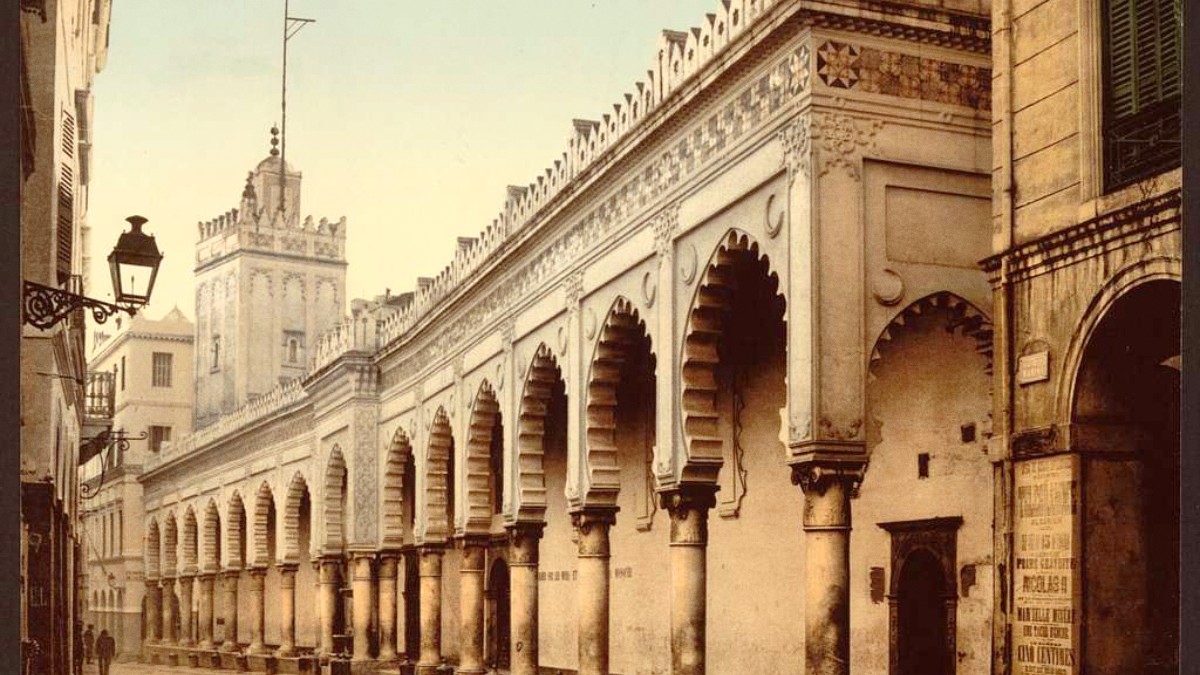
Algeria
Algerian cuisine is hearty and flavorful, often emphasizing spices, fresh vegetables, and various meats.
It is a cuisine rooted in tradition, passed down through generations.
This is typically a light meal, often consisting of bread with jam, honey, or butter, accompanied by coffee or tea.
Lunch is the main meal of the day. It usually takes place between 1:00 PM and 2:30 PM. Many businesses close for a break during this time.
Dinner is lighter than lunch and is eaten later in the evening, often around 8:00 PM or 9:00 PM.
The national dish. Steamed semolina grains served with a rich stew of vegetables (carrots, zucchini, potatoes, chickpeas) and meat (lamb, chicken, or beef).
Widely available in traditional restaurants, often prepared on Fridays.
A traditional, hearty soup made with green wheat (frik), vegetables, and lamb or chicken. Very popular, especially during Ramadan, and often served as a starter.
Many local eateries offer it daily.
A slow-cooked stew named after the earthenware pot it is cooked in. Tajines feature various meats (lamb, chicken) or fish, combined with vegetables, fruits (like prunes or apricots), and aromatic spices.
Found in many traditional restaurants.
Crispy, thin fried pastry rolls filled with minced meat, cheese, egg, or vegetables. A popular appetizer or snack, especially during Ramadan.
Thin, layered semolina flatbreads, often filled with a spicy tomato and onion mixture. A popular and delicious street food.
Most fine dining options exist within international luxury hotels. Hotels like the Sofitel and Hotel El Aurassi feature restaurants blending Algerian and international cuisine.
Numerous local restaurants, often called "restaurants algériens," are scattered throughout the city. They offer traditional Algerian dishes at reasonable prices.
Small eateries, snack bars, and street food stalls are abundant, especially around markets and busy streets. Excellent for quick, affordable, and authentic meals.
Local markets, like Marché Meissonier, offer fresh produce, a wide array of spices, and often small stalls selling prepared foods or ingredients for a picnic.
Exploring these markets is a culinary experience in itself.
This bustling market is not just for produce; you will find small stalls selling prepared foods.
Excellent for quick, affordable, and authentic meals.
Available in upscale neighborhoods.
Present in areas like Hydra and El Biar.
Caters to diverse tastes.
Many options in Hydra and El Biar.
All meat in Algeria is halal due to the predominantly Muslim population.
Kosher food is not widely available.
Be aware that common ingredients like semolina, lamb, chicken, and various vegetables are foundational to many dishes.
Some dishes are traditionally eaten with the right hand. Bread is a fundamental part of every meal, used to scoop up stews and sauces. Wait to be seated or invited to eat, and sharing dishes is common.
Formal cooking classes specifically for tourists are rare. However, private guides or specialized tour operators may arrange a personalized cooking experience.
Food tours are not a standard offering. A local guide could lead you through markets, explain ingredients, and recommend eateries.
Farm visits and tours of food producers are not typically available as tourist activities within Algiers itself. These are generally outside the scope of urban tourism.
Religious festivals, like Eid, offer significant cultural insights. While you may not participate directly, observing the celebrations presents an unique cultural experience.
Local cultural centers or hotel staff might have information on these seasonal delights.
Your hotel concierge might have information on current happenings. Food-related events or festivals might coincide with your visit.
Check local calendars to find out.
A local guide could lead you through markets, explaining ingredients and recommending eateries, turning a simple market visit into a food discovery tour.
Mint tea is a staple of Algerian hospitality. Alcohol is available in licensed hotels, some restaurants, and dedicated shops, but is not widely consumed in public spaces.
Navigating dietary restrictions is possible. All meat is halal. Gluten-free options are limited. Direct communication with staff, preferably in French or Arabic, is important for specific needs.
Meal times shift dramatically during Ramadan, with Iftar after sunset and Suhoor before sunrise.